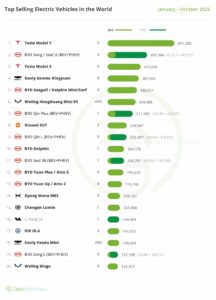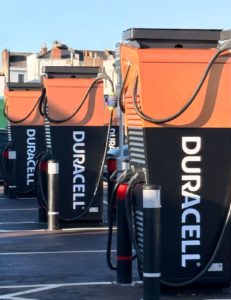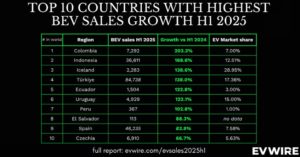China’s EV market is highly competitive, with over 94 brands offering more than 300 models at prices ranging from just $5,000 to over $90,000. Local brands take up 81% of the EV market, with BYD, Wuling, Chery, Changan, and GAC among the top players. Meanwhile, a range of EV start-ups, such as Nio, Xpeng, Neta, AITO, IM Motors, Zeeker, Aiways, and Livan, are performing well and giving strong competition to established foreign brands.
In 2022, Tesla faced challenges in the Chinese market, with production halts in April and May caused by the resurgence of COVID-19, leading to a nearly 5% YoY drop in its market share. BYD, on the other hand, increased its market share by over 11% YoY in 2022, with six out of the top 10 models in the Chinese market coming from the brand.
Looking ahead, Counterpoint predicts that EV sales in China will exceed 8 million units in 2023. The phasing out of EV purchase subsidies and the wealth of EV players could lead to a price war as brands fight for market share. In January 2023, BYD raised its EV prices due to rising raw material costs, but later announced price reductions for some models in February, following Tesla’s lead.
The top 10 EV models in 2022 represented nearly 45% of all EV sales, a 3% decline from 2021. This indicates that established players are facing fierce competition from fresh start-ups. Additionally, the Wuling Hongguang Mini EV’s eight-quarter dominance in the market came to an end in Q4 2022 when the BYD Song overtook it as the best-selling EV model.
China’s EV market remains the most vibrant globally, with a wide range of brands and models available to consumers. As the industry continues to evolve, it will be interesting to see how established players and new entrants navigate the challenges and opportunities in this fast-growing market.
Source: Counterpoint







